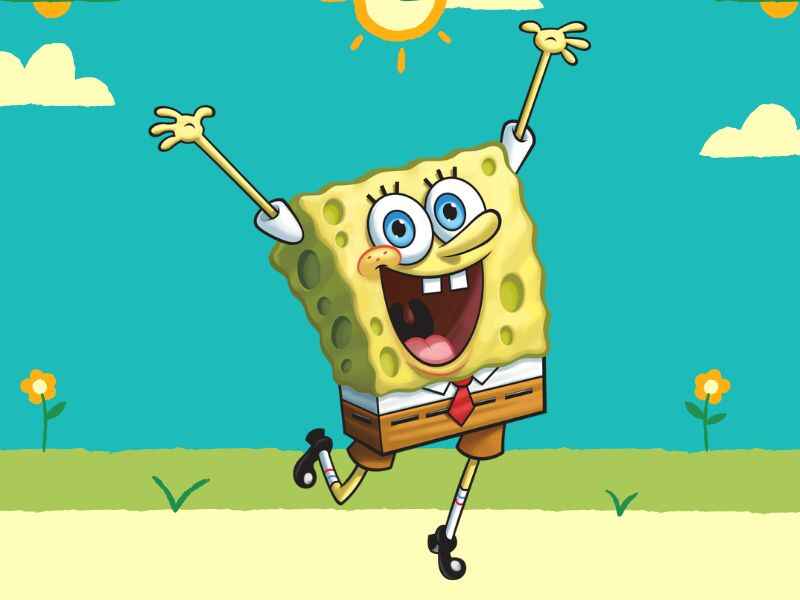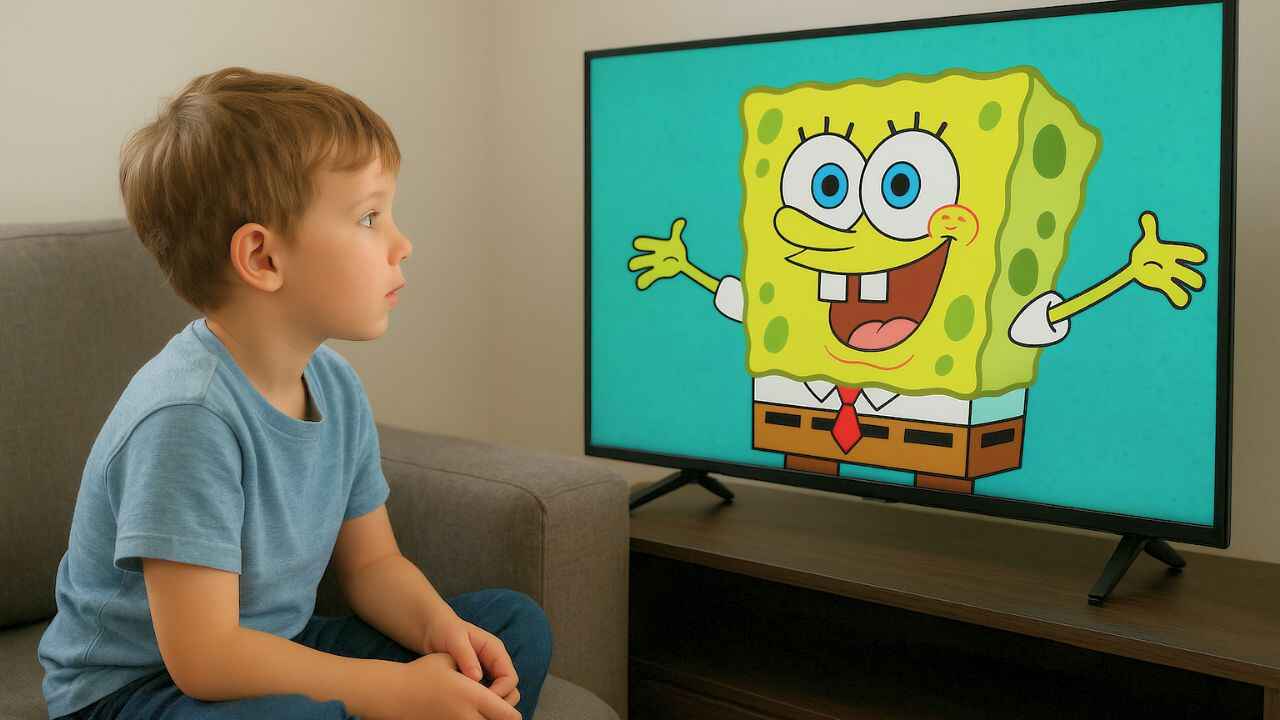Is SpongeBob Autistic?
For years, fans of SpongeBob SquarePants have asked the same question: Is SpongeBob autistic? People talk about it in online groups, share theories, and even bring it up at fan events. This idea is not just an internet rumor. It also comes from things Tom Kenny, the voice of SpongeBob, has said.
At events like Motor City Comic Con, and in past interviews, Kenny has said that SpongeBob could be “on the spectrum.” His words have started many conversations, especially with people who feel they are like SpongeBob in some ways.
In this article, we will look at how this question began, what Tom Kenny really said, and why some people connect so strongly with this character. We’ll also explore what fans notice about him, the show’s background, and what it all means for viewers of all ages.
Where This Question Comes From
The idea that SpongeBob might be autistic didn’t just appear one day. Fans have talked about it for years in forums, blogs, and video comments. They noticed patterns in how SpongeBob acts — like his love for routines, his strong emotions, and how he sometimes misses social cues. Over time, these talks grew into a common fan theory.
The theory became more popular at Comic Con events. That’s when Tom Kenny, the voice of SpongeBob, met fans and answered questions. At Motor City Comic Con, one moment stood out. A fan with autism asked if SpongeBob was like them. Kenny gave a warm answer, and it spread quickly on social media.
Clips of this moment went viral on TikTok, Instagram, and Twitter. Many people who had never thought about it before began to wonder. From then on, Tom Kenny became the main reason people link SpongeBob and autism.
What Tom Kenny Actually Said
At Motor City Comic Con, someone asked Tom Kenny, “Is SpongeBob autistic?” He replied right away, “Yes, of course. That’s his superpower — the same way it’s your superpower.”
Kenny’s reply wasn’t a medical opinion. It was a friendly and personal way to say that SpongeBob shares traits with people on the autism spectrum. He wasn’t giving a diagnosis. He was celebrating those traits as something good.
This wasn’t the first time he mentioned it. In 2012, on Marc Maron’s WTF podcast, Kenny said SpongeBob was “a little autistic” when talking about his focus and high energy. Even then, he made it clear he wasn’t speaking as a doctor — just as someone who knows the character very well.
His words have been shared in news stories, fan chats, and videos. They have inspired many autistic fans to say SpongeBob helped them feel understood.
Understanding Autism in Simple Words
Autism is a way some people’s brains work. It makes them see and feel the world differently. It’s not bad — it’s just another way of thinking, learning, and living.
Some people with autism might:
- Notice details that others miss.
- Enjoy routines and patterns.
- Focus deeply on things they love.
- Find some social situations hard.
Autism looks different for everyone. No two people are the same. When Tom Kenny says SpongeBob might be “on the spectrum,” he means SpongeBob shows some of these traits — and those traits can be a strength.
Autism is part of what makes people unique and special. It’s one of the many ways to experience the world.
Does SpongeBob Show Autistic Traits?
Many fans notice parts of SpongeBob’s personality that remind them of traits sometimes seen in autistic people. These ideas are not medical facts — just things fans have picked up over time.
Routines and love for his job
SpongeBob works at the Krusty Krab and loves it more than anything. He follows the same routine every day and is happy doing it. Some fans say this is like how some autistic people enjoy having a set schedule
Big emotions
SpongeBob feels emotions in a big way — whether he’s excited, sad, proud, or scared. His feelings show clearly on his face. Fans think this is similar to how some autistic people express emotions openly and strongly.
Trouble with social cues
Sometimes SpongeBob doesn’t notice hints from others. He might not realize Squidward is annoyed or that Patrick is confused. This reminds some people of how reading social signals can be hard for some on the spectrum.
Intense hobbies
When SpongeBob likes something, he puts all his energy into it — like catching jellyfish, doing karate, or cooking Krabby Patties.

What the Show’s Creator Said (or Didn’t Say)
SpongeBob’s creator, Stephen Hillenburg, never said that SpongeBob is autistic. He focused on making a fun, silly, and childlike character who could make people laugh.
Hillenburg studied marine biology and animation. He made SpongeBob curious, cheerful, and full of life. He never spoke about the autism idea while he was alive. This means most of the theory comes from fans and from things Tom Kenny, the voice actor, has said.
In the end, SpongeBob’s personality was made to appeal to everyone — kids and adults alike.
Why Many Fans Relate to SpongeBob
Representation matters in shows that millions of people watch. Some autistic fans feel SpongeBob is like them. They see themselves in his routines, big emotions, and strong hobbies.
Over the years, many fans on the spectrum have shared that SpongeBob helped them feel understood. Some say he made them feel proud of their differences. Others say he showed that being unique can be fun.
For kids, this can help build confidence. For adults, it can be a reminder that the traits people notice most can also be their biggest strengths. That’s why the idea of SpongeBob being autistic — even if it’s never been confirmed — matters so much to so many.
Autism and Cartoons – Why It Matters
Cartoon characters are more than just fun to watch. For many kids, they feel like friends, heroes, and even a safe place to turn to. If a character acts in a way that feels familiar, it can help a child feel understood and less alone.
For autistic kids, this can mean a lot. Seeing a character who likes routines, shows big feelings, or spends lots of time on a hobby can help them feel their way of seeing the world is okay.
Familiar traits on screen can also give kids confidence. They might think, “If they can do it, I can too.” Characters like SpongeBob, Elmo from Sesame Street, and Julia (who is autistic) can help kids feel proud of themselves and show others how to be kind.
Is This an Official Fact?
No — SpongeBob has never been officially called autistic.
There’s a difference between:
- Written as autistic – The creator made the character autistic from the start, like Julia on Sesame Street.
- Seen as autistic by fans – People notice traits that feel similar to autism, even if it wasn’t planned.
SpongeBob’s creator, Stephen Hillenburg, never said he was autistic. The idea mostly comes from fans and from Tom Kenny, the voice of SpongeBob, who has spoken kindly about the idea.
Why Tom Kenny’s Words Made Headlines
At a Comic Con, a fan with autism asked Tom Kenny if SpongeBob was like them. Kenny said, “Yes, of course. That’s his superpower — the same way it’s your superpower.”
Many people found this touching. Hearing a famous person talk about autism in a positive way—and link it to a loved character—meant a lot. Videos of the moment spread fast on TikTok, Instagram, and Twitter.
This small comment started a bigger talk about autism in TV shows. It showed how a few kind words can make people feel seen and valued.
You May Also Like:
When Did SpongeBob Come Out? A Simple Guide for Everyone
How Tall is SpongeBob? (Official Height, Comparisons & Fun Facts)
FAQ – Quick Answers
Is SpongeBob officially autistic?
No. The show’s creator, Stephen Hillenburg, never said he was. But Tom Kenny, who is SpongeBob’s voice, once said he is “kind of on the spectrum.” This made many fans feel happy and understood.
Why do some people think he is?
SpongeBob has traits that are like autism. He loves routines, feels emotions in a big way, and has strong hobbies. Many autistic people connect with these traits.
Does it matter if he is or not?
Yes, for people who see themselves in him. TV characters can help kids feel understood, proud, and show others how to be kind.
What’s the most important thing to know?
Autism is a natural part of being human. Whether SpongeBob was made that way or not, what matters is celebrating differences.
Final Thoughts
SpongeBob may not be officially called autistic, but many fans still feel close to him. His routines, emotions, and hobbies make him easy for some autistic people to relate to.
In the end, labels are not the most important thing. What matters is the joy and comfort a character brings.
SpongeBob shows us that being different can be your greatest strength. When we accept our quirks and treat others kindly, we make the world better for everyone.
Disclaimer
This article is only for general information. SpongeBob SquarePants is not a real person. Nickelodeon and the show’s creators have never said he is autistic. The ideas here are just opinions, not medical advice.

Joseph Quinn is a writer and digital creator best known as the founder of FreakBobTime. With years of blogging experience, he blends technology, culture, and internet humor into unique stories and creative experiments. Through his work, Joseph brings back the playful, weird side of the web while making content that connects with readers worldwide.


1 thought on “Is SpongeBob Autistic? What the Voice Actor and Fans Really Think”